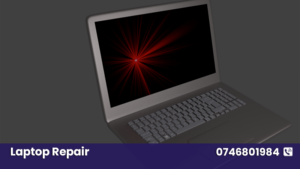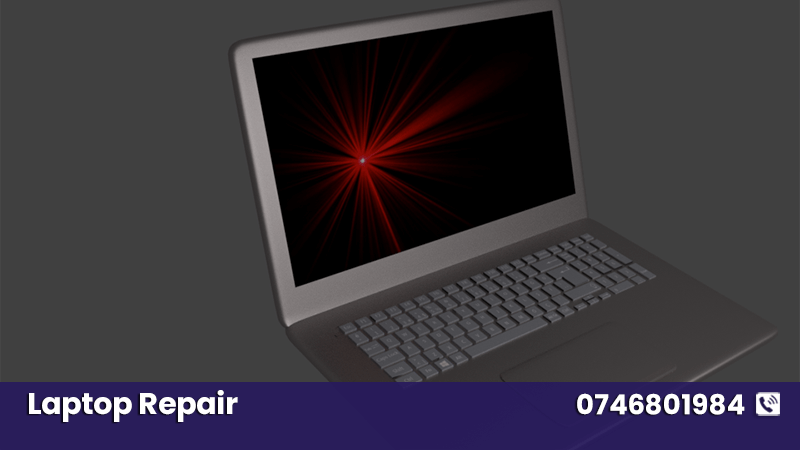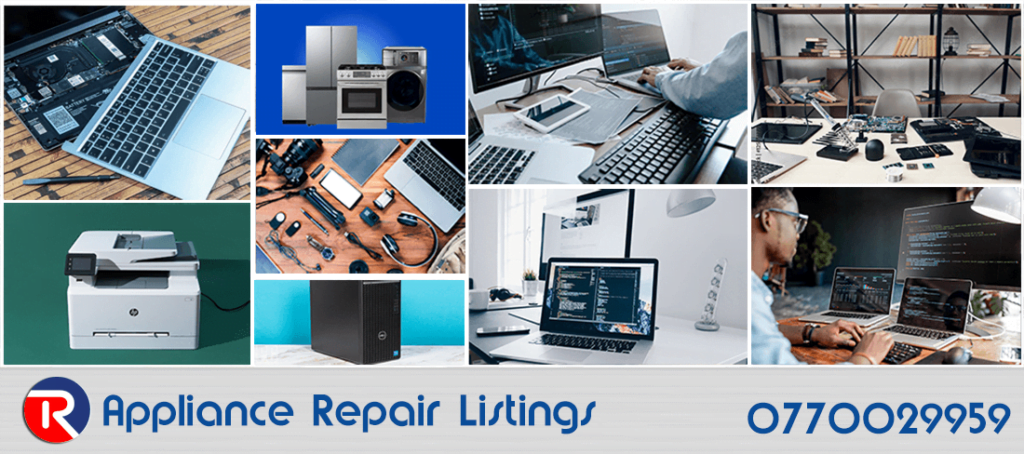Laptop Repair Services in Nairobi, Kenya
In Nairobi, Kenya, laptop repair services play a crucial role in ensuring the smooth functioning and longevity of personal and professional computing devices. As the technological hub of East Africa, Nairobi boasts a large number of businesses, educational institutions, and individuals heavily reliant on laptops for their daily tasks. With such widespread usage, the demand for reliable laptop repair services has grown significantly over the years.
Laptop Repair Services

Laptop repair services are essential for ensuring the smooth functioning of our devices. When our laptops encounter technical issues, skilled technicians can diagnose and fix the problems. These services encompass various aspects, such as hardware repairs, software troubleshooting, and virus removal. Expert technicians possess the knowledge to replace faulty components, such as screens, keyboards, or batteries. Additionally, they can optimize system performance and provide data recovery solutions when necessary. Promptly seeking professional laptop repair services can extend the lifespan of our devices and enhance productivity in our daily lives.
Key Services Offered:
- Hardware Repairs: Professional repair centers in Nairobi offer a wide range of hardware repair solutions. This includes fixing or replacing damaged components such as screens, keyboards, batteries, motherboards, cooling fans, and power adapters. Skilled technicians are equipped to handle repairs for various laptop brands, including Dell, HP, Lenovo, Acer, ASUS, and Apple MacBook.
- Software Troubleshooting: Software-related issues can be equally frustrating for laptop users. Repair services in Nairobi offer assistance with operating system errors, virus and malware removal, data recovery, driver updates, and resolving performance-related problems. Technicians may also provide guidance on system optimization to enhance the laptop’s overall efficiency.
- Upgrades and Customization: Many laptop repair centers offer upgrade services to improve a laptop’s performance and capabilities. This may involve increasing RAM, swapping out traditional hard drives for faster SSDs (Solid State Drives), or upgrading graphics cards for gaming enthusiasts or professionals working with multimedia tasks.
- Data Backup and Security: Ensuring data safety is a top priority for users in Nairobi. Repair centers can assist in setting up data backup solutions to prevent data loss in case of hardware failure. They may also advise on security measures like encryption and recommend antivirus software to protect against cyber threats.
- Networking and Connectivity: Laptop users in Nairobi often require support with networking and connectivity issues, especially for business setups. Repair services can help troubleshoot problems with Wi-Fi connectivity, LAN configurations, and VPN setups.
- On-Site and Remote Support: Many repair centers offer the convenience of on-site services for businesses and individuals who cannot visit their physical location. Additionally, remote support is becoming increasingly popular, where technicians can diagnose and fix certain software-related issues remotely over the internet.
- Warranty Services: Authorized service centers for major laptop brands may offer warranty repair services for laptops still covered by the manufacturer’s warranty.
Choosing a Reliable Laptop Repair Service in Nairobi: With several laptop repair service providers in Nairobi, it is essential to consider a few factors before entrusting your device to any particular center:
a. Experience and Expertise: Look for repair centers with experienced technicians who possess the necessary expertise to handle a wide range of laptop models and issues.
b. Reputation and Reviews: Read online reviews and testimonials to gauge the reputation of the repair center and their track record in providing satisfactory services.
c. Turnaround Time: Inquire about the estimated time for repairs, as quick and efficient service is crucial, especially for businesses and students.
d. Pricing: While the cost of services is essential, it should not be the sole deciding factor. Choose a center that offers transparent pricing with no hidden charges.
e. Warranty: Check if the repair center provides a warranty on their services and the replacement parts used.
In Nairobi, Kenya, laptop repair services are an indispensable part of the vibrant tech ecosystem. The availability of reliable repair centers ensures that laptop users can quickly resolve issues and get back to their regular computing activities with minimal downtime. By selecting reputable service providers with a proven track record, individuals and businesses can maintain their laptops’ optimal performance and extend their lifespan.
Common laptop software and hardware problems that we repair
Common Laptop Software Problems:
- Operating System Issues: Software glitches, corrupted files, or improper updates can lead to system crashes, freezes, or slow performance.
- Virus and Malware Infections: Laptops are susceptible to viruses and malware, which can compromise data security and disrupt normal operations.
- Driver Problems: Outdated or malfunctioning drivers can cause hardware components, such as the graphics card or Wi-Fi adapter, to function improperly.
- Application Errors: Certain programs may encounter errors, fail to launch, or crash due to compatibility issues or corrupted software installations.
- Blue Screen of Death (BSOD): This critical error occurs when the operating system encounters a major issue, forcing the laptop to shut down to prevent further damage.
Common Laptop Hardware Problems:
- Screen Issues: Problems with the display, like dead pixels, flickering, or a blank screen, can be caused by damaged LCD panels or faulty connections.
- Keyboard Malfunctions: Non-responsive keys, sticky keys, or a completely unresponsive keyboard may result from liquid spills or worn-out components.
- Battery Failure: Laptop batteries degrade over time and may stop holding a charge or fail to power the laptop altogether.
- Overheating: Dust accumulation or malfunctioning cooling systems can cause laptops to overheat, leading to performance issues or sudden shutdowns.
- Hard Drive Problems: Hard drive failures can result in data loss and system instability due to bad sectors, physical damage, or wear and tear.
Understanding these common laptop software and hardware problems can help users identify and address issues promptly, whether through self-troubleshooting or seeking professional laptop repair services. Regular maintenance and software updates can also prevent some of these problems from occurring in the first place.
Laptop Brands and Models that we fix
We repair all laptop brands and models, including but not limited to :
As of my last update in September 2021, there were numerous laptop brands and models available in the market. It’s important to note that new models are constantly being released, and some older models may have been discontinued or replaced. However, here are some well-known laptop brands and examples of popular laptop models from each brand:
- Dell:
- Dell XPS 13
- Dell Inspiron series
- Dell Latitude series
- Dell Precision series
- Dell Alienware series (gaming laptops)
- HP (Hewlett-Packard):
- HP Spectre series
- HP Envy series
- HP Pavilion series
- HP EliteBook series
- HP Omen series (gaming laptops)
- Lenovo:
- Lenovo ThinkPad series
- Lenovo IdeaPad series
- Lenovo Yoga series (convertible 2-in-1 laptops)
- Lenovo Legion series (gaming laptops)
- Apple:
- MacBook Air
- MacBook Pro (13-inch and 16-inch models)
- ASUS:
- ASUS ZenBook series
- ASUS VivoBook series
- ASUS ROG (Republic of Gamers) series (gaming laptops)
- Acer:
- Acer Swift series
- Acer Aspire series
- Acer Predator series (gaming laptops)
- MSI (Micro-Star International):
- MSI GS series (gaming laptops)
- MSI Creator series
- MSI Prestige series
- Microsoft:
- Surface Laptop series
- Surface Pro series (convertible tablets/laptops)
- Razer:
- Razer Blade series (gaming laptops)
Laptop screen replacement services in Nairobi
Laptop Screen Replacement Services
Description: Laptop screen replacement services involve the professional replacement of a damaged or malfunctioning laptop screen with a new one. The laptop screen, also known as the display panel or LCD (Liquid Crystal Display), is a crucial component that allows users to view and interact with their laptops. If the screen becomes cracked, shattered, or develops other issues like dead pixels or flickering, it can significantly impact the user experience and overall usability of the laptop. Screen replacement services are offered by skilled technicians who have the expertise to diagnose screen-related problems and perform the necessary repairs or replacements.
Purpose: The main purpose of laptop screen replacement services is to restore the laptop’s visual functionality and ensure the user can once again use the device without any hindrance caused by a damaged or faulty screen. By replacing the damaged screen with a new one, the service aims to eliminate issues like distorted visuals, display artifacts, or a completely unresponsive screen. A properly functioning screen enhances user productivity, facilitates smooth workflow, and allows for an enjoyable computing experience.
Our laptop screen replacement process
- Diagnosis: The technician examines the laptop to identify the screen-related issues and confirms whether a screen replacement is necessary. Sometimes, the problem might be caused by other components, and the technician will rule out any unrelated issues.
- Screen Sourcing: If a screen replacement is required, the technician will source a compatible and high-quality replacement screen. They will ensure that the new screen matches the laptop’s specifications in terms of size, resolution, and connector type.
- Disassembly: The laptop is carefully disassembled to access the internal components, including the damaged screen. This step requires precision to avoid causing any additional damage.
- Screen Removal: The technician safely removes the damaged screen from its mounting brackets, cables, and connectors. Special care is taken to prevent any damage to the surrounding components.
- Screen Installation: The new screen is delicately installed, following the manufacturer’s guidelines and proper alignment. The cables and connectors are securely attached to ensure smooth functioning.
- Testing: After the replacement, the laptop is reassembled, and thorough testing is performed to check the new screen’s functionality. The technician ensures that the visuals are clear, free from defects, and responsive to touch (if applicable).
- Final Inspection: The laptop undergoes a final inspection to verify that all aspects of the screen replacement have been completed successfully. Any other potential issues are addressed at this stage.
- Handover and Warranty: Once the laptop screen replacement is deemed successful, the device is returned to the owner, along with any relevant warranty information for the replacement screen.
Laptop screen replacement services aim to provide customers with a fully functional and visually satisfying laptop screen, ensuring the continued usability and longevity of the device.
Laptop Hardware Upgrades, Memory, Storage, and Graphics in Nairobi, Kenya
Besides repairs, We also upgrade laptop hardware.There are several reasons why someone may need laptop hardware upgrades. As technology advances and software requirements become more demanding, upgrading laptop hardware can help improve performance, extend the device’s lifespan, and enhance the overall user experience. Here are some common reasons why individuals may consider laptop hardware upgrades:
- Performance Improvement: Upgrading components like the CPU (Central Processing Unit), RAM (Random Access Memory), or SSD (Solid State Drive) can significantly boost the laptop’s performance. Faster processing speeds and increased memory capacity allow the laptop to handle more intensive tasks and run multiple applications simultaneously without slowing down.
- Software Compatibility: Newer software applications and operating systems often require more resources than older versions. If a laptop’s hardware is outdated, it may struggle to run the latest software effectively. Upgrading hardware ensures better compatibility with the latest software and prevents performance bottlenecks.
- Gaming and Graphics: Gamers or professionals working with graphic-intensive applications may require upgrades to the GPU (Graphics Processing Unit) for smoother gameplay or faster rendering of visual content.
- Storage Capacity: As files, applications, and media accumulate, a laptop’s storage space may become insufficient. Upgrading to a larger-capacity SSD or HDD (Hard Disk Drive) allows users to store more data and improves overall system responsiveness.
- Battery Life: Replacing an old and worn-out laptop battery can improve the device’s battery life, enabling longer usage periods between charges.
- Connectivity and Ports: Older laptops may lack modern connectivity options like USB Type-C or Thunderbolt ports. Upgrading to a newer model with these features can enhance device connectivity and transfer speeds.
- Wi-Fi and Networking: Upgrading the Wi-Fi card to a more advanced model can improve internet connection speeds and provide better network stability.
- Display: Upgrading to a higher-resolution display or a screen with better color accuracy can enhance the visual experience, making it suitable for tasks like content creation, design, and media consumption.
- Repairs and Maintenance: Sometimes, hardware components may become faulty or damaged due to wear and tear. In such cases, upgrading the affected part is often more cost-effective than replacing the entire laptop.
It’s important to note that not all laptops are upgradeable, as some components may be soldered onto the motherboard or otherwise not easily accessible for replacements. Before considering hardware upgrades, it’s advisable to check the laptop’s specifications and consult with a professional technician to determine the best upgrade options based on the specific laptop model and the user’s needs.
CATEGORIES
- Advertisements
- Appliances
- Business Services
- Entertainment
- Grooming in Kenya
- Industry
- Information
- Places
- Property
- Public and Social
- Repair
- Residential & Domestic
- Tradesmen
- Web Design, Nairobi Kenya
.
- Our Facebook Page
- Computer repair in Nairobi
- Washing Machine Repair in Nairobi
- Television Repair in Nairobi


